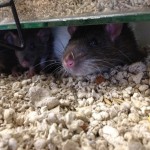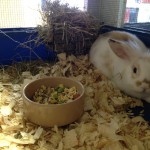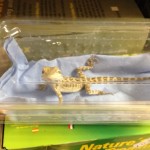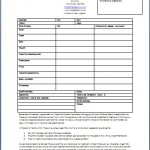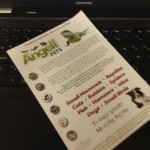Pet shop Gloucester tips series – how to select an animal and more importantly, where to buy from.
Since the most important thing is to select where to buy we will deal with this first. Get this right and selecting and individual animal becomes easier.
There is a lot of rubbish out there about where is the best place to buy an animal. The one we hear the most at our pet shop Gloucester is “from a breeder”. On the face of it this seems like a good idea, we are breeders ourselves, however there are a lot of people out there that could call themselves breeders. I think, following all the press coverage and national campaigns, most people would no longer consider buying a puppy from a Welsh puppy farm. These establishments are renowned for the attrocious conditions the animals are kept in, terrible in breeding and sick puppies. They are breeders though. So clearly bold, over simplified statements are a waste of time.
To select where to buy you need to consider a few basic points and this will guide you
- Can you view the animal. If not, do not buy it. There are a host of “private” breeders and sellers on the internet and social media. I strongly suggest you do not buy from them. Not all, but most, are chancers that “rescue” animals (i.e. get their stock for free from anyone giving stuff away – and you have to ask why is it being given away?) who then resell it onto unsuspecting customers. I get these people trying to sell their animals to me all the time but we do not buy from these sources. There is generally something wrong with it, or it is very old or the animal is not being kept in the correct conditions. Only buy an animal you have seen before you have parted with your cash and make sure you see it in the enclosure it is being kept in. We also get these people coming to us for advice on how to look after the animals they are breeding or trying to get us to cure them of a host of illnesses. They should be able to do this themselves or be speaking to a vet.
- Is the person selling the animal qualified to give you advice (and ask to see the qualification). It is our view that no one should be selling animals unless they are formerly qualified in the care of that animal and so are able to give the correct advice. Again, this rules out most online sellers but interestingly most breeders as well. Anyone can set up as a breeder of animals without any training, qualifications, experience or specialist equipment. You have to have a licence to own a pet shop and to get a licence you have to have a minimum qualification.
- Is the animal being kept in the right conditions. Some animals have specific requirements. For example a bearded dragon needs high heat, thermostatic heat control to prevent overheating and fairly high intensity ultraviolet light. If they do not have this they will be getting ill and could get disorders that will materialise later (such as metabolic bone disease). Do they have space and are the enclosures clean. Again a dirty cage can harbour all sorts of nasties that can cause problems later.
- Does the seller provide a health check before handing over the animal. If not, why not? Do they know how to or have they something to hide? Can they explain what they are checking for? If they can’t then you know they didn’t properly check the animal when they got it themselves.
- Are you given advice on how to look after the animal? If not you have to assume it is because the seller doesn’t know how to look after the animal in the first place so shouldn’t be selling it. A seller must give you all the advice you need to correctly care for the animal you have selected. That is their responsibility. Following their advice is your responsibility. If the advice is not there you cannot follow it and may be leaving yourself open to charges of neglect or abuse through ignorance.
So places to avoid are online sellers, pet shop chains (supermarkets), newspaper classifieds, unregistered breeders etc. Places to consider are independent pet shops such as our pet shop Gloucester with specialist knowledge (this is not all independents by the way) and registered breeders. There are some private sellers with a lot of knowledge and genuine reasons for needing to sell but identifying these from the charlatans is nigh on impossible for the novice and remember, commercial trading without a licence is illegal.
So you’ve decided where to buy from, now how do you select an animal? Most of the following points you will not come across if you have done your job of selecting a seller properly. A good seller would never have a sick or distressed animal on display (if they are licenced it breaches the terms of their licence and action can be taken)..
- It seems an obvious thing to say but does the animal look healthy? If a rat is sitting hunched up on its own, maybe shivering, then there could be something wrong. Does the rabbit have a runny nose, is the fish swimming upside down. Very importantly for all animals, is their bottom clean or is there evidence of loose stools.
- Is the animal clean and well groomed. Most animals keep themselves very clean. If the animal has stopped cleaning itself there is generally a reason for this and it won’t be because it’s a lazy teenager. It indicates an unhappy animal. It is either ill or stressed.
- How active is the animal. Please bear in mind that different animals are active at different times but most will become active when disturbed to allow you to view them (with the possible exception of ferrets – some ferrets, Vinny our breeding male for instance, will not wake up if they are in a dead sleep without very vigorous attempts).
- Is it displaying normal behaviour. Hiding from you in a sleeping area or hide is normal for most animals, so don’t be surprised by that. Pacing the cage for instance is a sign of boredom (does the animal have anything to occupy it?) and is not normal.
- Is the animal docile? All animals can bite you, some are more likely to than others. Hamsters, when young and suddenly woken up can get a little freaked out for instance and will bite if you just reach in and grab them. You need to allow them to come round and pick them up from underneath (allowing them to walk onto your hand). Others will always carry a high risk of biting you (such as a cobalt blue tarantula or baboon spider) and should not be handled. The seller should be able to advice and demonstrate handling. If the seller says it is safe to handle get them to demonstrate first!
- We’ve dealt with this elsewhere so I assume by this stage you have already considered it and know which animal you want but it’s worth saying again. Make sure you have the time, space, budget, equipment and information necessary to care for the animal you are selecting properly. It is your responsibility. I had someone come in the shop the other day who had purchased a bearded dragon elsewhere and didn’t have any equipment whatsoever (not even an enclosure) or any idea on how to care for it. I know that animal is going to die but she bought it from one of the sellers previously mentioned who only cares that he got her money.
- Finally what guarantee do you get. This is a tricky one for reputable sellers. You should be offered a guarantee of some sort but do not expect it to be for too long. It should be able to reflect that the animal did not have any immediate health issues when you bought it but cannot guarantee that the animal will not get ill if you do not look after it properly. Our standard guarantee of health (and behaviour – that’s important) is 7 days. In this time it should become clear if the animal has an illness or behavioural problem. After this time the things you are doing to care for the animal begin to outweigh its original condition. Keep a reptile at the wrong temperature or humidity and it will start to suffer regardless of how healthy it was when you got it. However statements such as “animals must be returned within 24 hours or no refund” are ludicrous. You cannot tell within 24 hours if an animal is ill. They take at least that to settle in to their new environment.
A copy of our pet shop Gloucester animal health checklist and guarantee
The Angell Pets team

